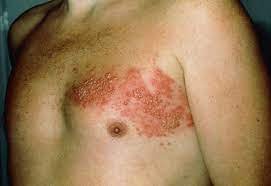RHEUMATOID ARTHRITIS
Rheumatoid Arthritis (RA) is an autoimmune disease that causes joint pain, swelling, stiffness, and decreased movement of the joints. Small joints in the hands and feet are most commonly affected. Sometimes RA can affect your organs, such as eyes, skin or lungs.
Normally, our immune system is supposed to attack foreign bodies in our body, like bacteria and viruses, by creating inflammation. In an autoimmune disease, our immune system mistakenly sends inflammation to our own healthy tissue. It leads to joint pain and swelling. If the inflammation present for a long period of time, it can cause damage to the joint. This damage cannot be reversed once it occurs.
RA is the most common form of autoimmune arthritis.
CAUSES
- The exact cause of RA is not known. There is evidence that autoimmune diseases runs in families. For instance, certain genes that we are born with may make us more likely to get RA.
RISK FACTORS
- Smoking – triggers RA. Smokers are at 40 times risk of developing RA than non-smokers.
- Infections – by certain bacteria and viruses
- Family history of Rheumatoid arthritis
SYMPTOMS
- With RA, there are times when symptoms get worse, known as flares, and times when symptoms get better, known as remission.
- Pain in affected joint.
- Morning Stiffness – stiffness of the affected joint, especially in the morning. It may last for 1 – 2 hours (even whole day).
- Swelling over the joints.
- Occasional fever
- Weight Loss
- Weakness
COMPLICATIONS
- Joint deformity – Permanent damage of affected joints.
- Premature Heart Diseases – Heart diseases at young age.
DIAGNOSIS
- Clinical examination by your Doctor
- Blood tests – RA Factor (Rheumatoid factor), ANA (Antinuclear Antibody).
- Imaging tests – X ray, MRI
GENERAL MANAGEMENT
- Stop smoking or try to reduce smoking
- Watch your weight – Maintain healthy weight. Reduce weight if you are obese. Weight loss may be recommended for overweight and obese people to reduce stress on inflamed joints.
- Sleep well – sleep at least 8 hours a day. There is evidence that decreased sleep can be correlated with increased pain levels.
- Do exercise or yoga as daily routine.
- Following Yoga poses will help you to manage complaints of RA:
- Tree pose (vrksasana)
- Bridge pose (Setu Bandha Sarvangasana)
- Corpse pose (Mrtasana or Savasana)
HOMEOPATHIC MANAGEMENT
Homeopathy offers treatment for both acute and chronic complaints of RA. Homeopathic medicines helps to relieve the pain and swelling in acute condition and also provides constitutional deep acting remedies to cure as well as prevent recurrence in chronic conditions.
Case studies on Rheumatoid Arthritis:
- A 3-month, double-blind, placebo-controlled study of 46 people treated with Homeopathic medicines for rheumatoid arthritis. The results showed significant improvement in patients treated with constitutional Homeopathic medicines than patients who are actively treated with placebo (unmedicated Homeopathic sweet pills), most notably in pain and stiffness.
- Another positive, double–blind, placebo-controlled trial of 111 people with rheumatoid arthritis evaluated the effectiveness of a fixed remedy such as Rhus toxicodendron, Bryonia cretica, Strychnos nux vomica, Berberis vulgaris, and Ledum palustre. The results showed significant decrease in the amount of analgesics required and in their perception of pain in patients treated with the above medicines as compared to those in the placebo group (unmedicated Homeopathic Sweet pills). It shows the effectiveness of Homeopathic remedy on the treatment of RA.
- The results of another study – 83 people with stable RA were randomized into 2 groups. One group of people received Homeopathic consultation (with unmedicated pills). Another group of people received Non-Homeopathic Consultation. From this 56 people who completed the study, only those receiving the homeopathic consultations experienced an improvement in their symptoms irrespective of the remedies or placebos they received. It suggests that, it is the homeopath (Doctor), rather than the homeopathic remedy, that produces a favorable effect.
REFERENCES
- https://www.cdc.gov/arthritis/basics/rheumatoid-arthritis.html
- https://www.ncbi.nlm.nih.gov/pmc/articles/PMC3093927/
- https://www.niams.nih.gov/health-topics/rheumatoid-arthritis
- https://www.winchesterhospital.org/health-library/article?id=38339
- https://www.peacehealth.org/medical-topics/id/hn-2246008
- https://www.versusarthritis.org/about-arthritis/complementary-and-alternative-treatments/types-of-complementary-treatments/homeopathy/
- https://my.clevelandclinic.org/health/drugs/4750-rheumatoid-arthritis-how-to-treat
- https://atomictherapy.org/rheumatoid-arthritis/
- https://www.mayoclinic.org/diseases-conditions/polymyalgia-rheumatica/diagnosis-treatment/drc-20376545
- https://epilepsytreatment.org/Arthritis-treatment-in-India/?gclid=Cj0KCQjwssyJBhDXARIsAK98ITTO9j1UIPipq7S2Zvd6j5ceIsLKsTgRjV0Ep_rQhV6AMArfB59zBfEaAlbJEALw_wcB
- https://www.rheumatology.org/I-Am-A/Patient-Caregiver/Diseases-Conditions/Rheumatoid-Arthritis
- https://www.geisinger.org/health-and-wellness/wellness-articles/2018/05/02/20/34/5-lifestyle-changes-that-could-help-improve-your-rheumatoid-arthritis-symptoms
- https://academic.oup.com/rheumatology/article/40/9/1052/1787996



0 Comments